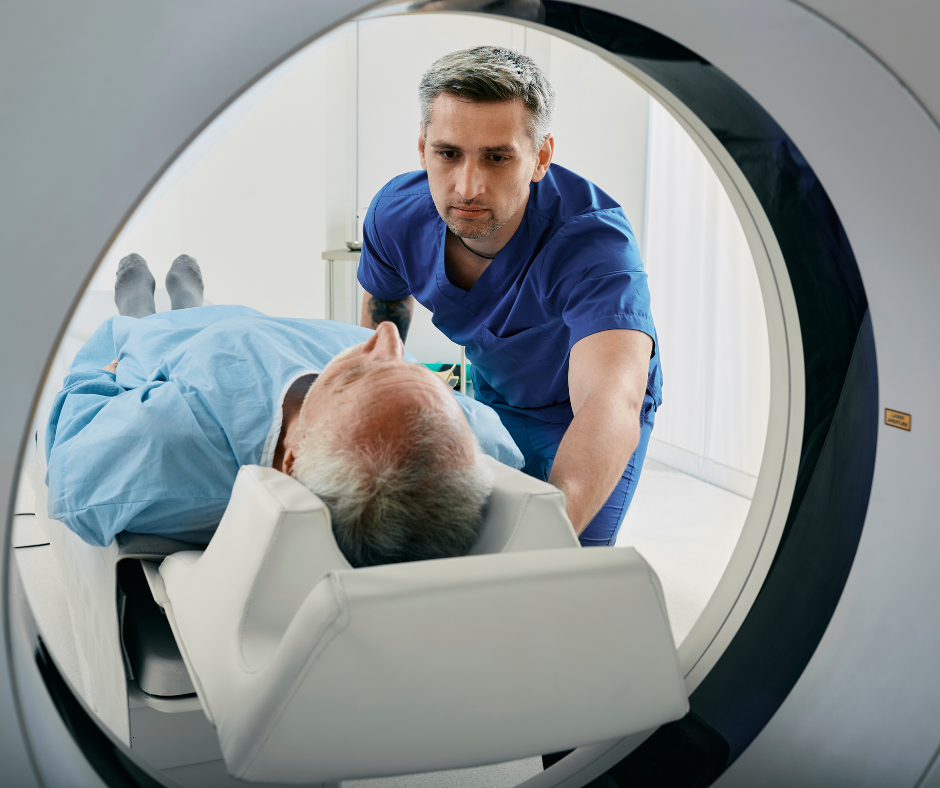
Lung cancer screening
Early detection and treatment of lung cancer is the most promising strategy to reduce the number of people who die of lung cancer.
Why is screening important?
Lung cancer is often diagnosed when it's at an advanced stage. This is one of the reason's it's the #1 cause of cancer death in Canada. Screening programs can help identify lung cancer earlier (when it is far more treatable) in those who do not have any symptoms of lung cancer but whose smoking history puts them at high risk for developing the disease.
Screening programs have the expertise and the technology required for effective lung cancer screening, while minimizing the risks. For decades screening for lung cancer was done using chest x-rays however, chest x-rays miss many lung cancers.
Screening programs today use low-dose CT scans (LDCT scans), which show more detail than a chest x-ray and emit less radiation than a standard-dose CT scan. In fact, LDCT scans use only one quarter of the radiation of a standard CT scan, or the equivalent of about 15 x-rays. Screening with LDCT has been shown to reduce mortality in those with a high risk of developing lung cancer.
Who is eligible for screening?
Your family doctor or nurse practitioner can provide you with a referral to a screening program. To be eligible for screening, you must meet all of the following requirements:
- aged 55 to 74
- current smoker or former smoker who quit within the last 15 years
- a smoking history of at least 20 years (or 15 years in Alberta)
Note that this is a referral to be assessed by the lung screening program, not a referral for the screening test itself. Even if your family doctor or nurse practitioner provides you with a referral, you may not meet the requirements of the screening program. The staff of screening program will further review your medical history, and consider additional factors like your body mass index, family history of lung cancer, race, education as well as your smoking status, smoking duration, smoking intensity and how many years it has been since you quit smoking. This information will determine your eligibility for screening.
Why are only certain people eligible for screening?
Screening comes with both benefits and risks, such as exposure to radiation. Research has shown that the benefits outweigh the risks and that it reduces mortality for those whose smoking history and age put them at high risk for developing lung cancer in the future.
Not being eligible for a provincial screening program does not mean you are at low risk of developing lung cancer. .
Will I be "fast tracked" for screening if I'm experiencing symptoms of lung cancer?
You will not be referred to a screening program if you are having symptoms that you suspect may be related to lung cancer.
Screening is meant only for those who are at high risk but do not have any symptoms of lung cancer. Speak to your healthcare provider if you're experiencing symptoms that you suspect may be related to lung cancer. Your healthcare provider will consider your symptoms and your personal and family history to determine if you need to be referred for diagnostic testing.
Provincial screening programs
Despite their proven benefits, lung cancer screening programs do not exist everywhere in Canada. Currently, only British Columbia and Ontario have permanent screening programs, while both Alberta and Quebec have pilot programs. The information for these programs is available below.
Provincial screening programs
Ontario
The Ottawa Hospital
Renfrew Victoria Hospital and Cornwall Community Hospital (affiliated)
1-844-394-1124
Health Sciences North (Sudbury)
1-844-703-0164
Lakeridge Health (Oshawa)
1-905-576-8711 ext. 34449
University Health Network (Toronto)
416-340 -4154
Provincial screening programs
British Columbia
1-877-717-5864
Provincial screening programs
Alberta (pilot)
1-866-727-3926
- Peter Lougheed Centre (Calgary)
- Sheldon M. Chumir Health Centre (Calgary)
- Richmond Road Diagnostic and Treatment Centre (Calgary)
- High River General Hospital
- Royal Alexandra Hospital (Edmonton)
- Grand Prairie Regional Hospital
- Wainwright Health Centre
Provincial screening programs
Quebec (pilot)
1-844-656-4312
depistagecancerpoumon@ssss.gouv.qc.ca
- Centre universitaire de santé McGill (CUSM Centre hospitalier de l’Université de Montréal (CHUM)
- Institut universitaire de cardiologie et de pneumologie de Québec - Université Laval (IUCPQ - UL)
- Centre intégré universitaire de santé et de services sociaux de l’Estrie - (CHUS)
- Centre intégré de santé et de services sociaux de Laval
- Centre intégré de santé et de services sociaux de la Côte-Nord
- Centre intégré de santé et de services sociaux de la Montérégie-Centre.
Provincial screening programs
Nova Scotia
1-833-505-LUNG (5864)
Currently available in Central Zone communities only
Provincial screening programs
New Brunswick
Anticipated launch in Spring 2025
This section was made possible by an unrestricted educational grant from Merck Canada, Sanofi Canada and Astra Zeneca Canada.

